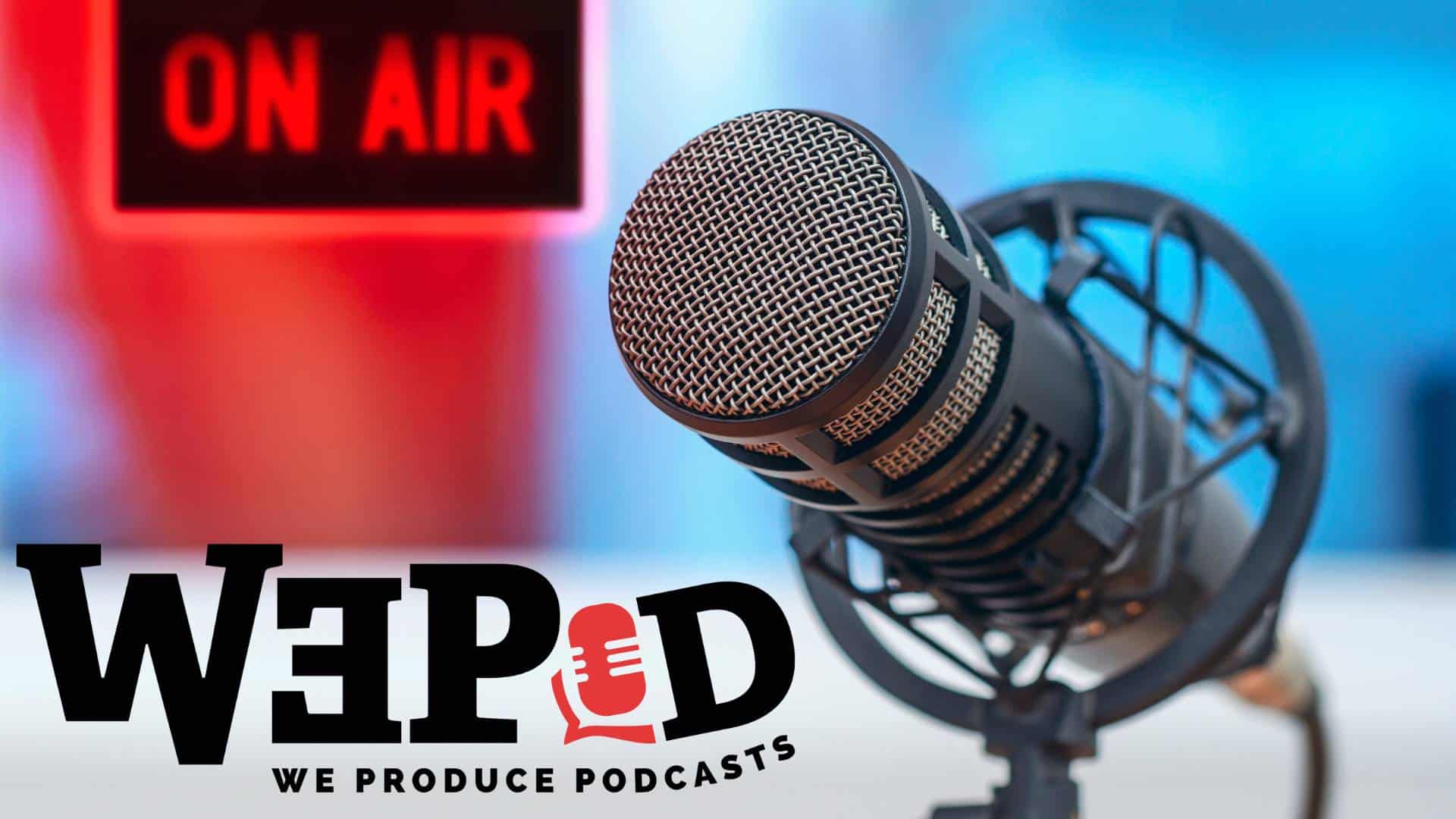The community of European podcasters dubbed WePod marks its first anniversary, connecting voices to audiences across the EU.

A microphone in a recording studio. (Photo by avdyachenko for Getty Images)
On 27 September 2024, the collaboration known as WePod will bring together podcasters from across Europe in a series of stories that cross borders. The series is the latest effort in a two-year project co-funded by the European Union to create a community of European podcasters.
The launch of the first co-production, “Mar de Rabia” or “Sea of Rage” is a gripping audio documentary that explores the untold stories of two European coastal towns — Barbate in Spain and Gioia Tauro in Italy — as they take a stand against drug trafficking and reclaim their communities.
“Mar de Rabia” delves deep into the lives of residents in these two towns, who, despite their distance, share a common struggle against the influx of illegal drugs and the societal consequences that follow. Barbate, located in Cádiz, Spain, is a principal entry point for hashish coming from Morocco, while Gioia Tauro, in Calabria, Italy, is the main entry point for cocaine into the country, with 97% of Italy’s cocaine seizures in 2021 happening in its port.
The launch of the series comes as WePod celebrates its first anniversary. In September 2023, representatives from nine organizations across seven European countries gathered in Madrid to kick-off the ambitious series of projects.
These projects range from collaborative audio content, a compilation of academic studies on podcasting and training sessions for youth and professionals in the podcasting space, to the creation of a “talent farm” whereby people who produce elements of podcasts — everything from music to sound effects to editing — can find each other.
Voices across Europe
María Jesús Espinosa de los Monteros, CEO of PRISA Audio, said during the launch that WePod was designed to unite a European audio industry that has been fragmented by different languages. “We want to join forces to make the stories of our continent shine and go beyond our borders,” she said. “We want to create a European sound story with the different voices and accents that enrich our region.”
The project is funded by the European Commission’s Creative Europe Programme (CREA) and led by PRISA Audio, the world’s leading producer of Spanish-language podcasts.
In the upcoming year, WePod will launch the European Podcast Academy, which will offer training, mentorship and resources to podcast creators of all levels.
“From the start, it’s been exciting to work with teams across Europe on the WePod project,” said Andrea Knezevic, News Decoder’s multimedia communications specialist for WePod. “Seeing our first podcast episodes and workshops come together has been great. Now, after a year of hard work, I’m looking forward to our co-produced podcasts going live and launching the European Podcast Academy.”
Over the past year, WePod has released episodes of the podcast “Sounds Like Europe.” Twice each month, the series features conversations about the European podcasting landscape, bringing in voices from different countries to share experiences and insights. The podcast has sparked discussions on how podcasting can reflect the diverse cultures and stories of Europe.
Training the next generation of audio storytellers
In March 2024, team members from News Decoder and Prisa held a podcasting workshop for students at the European School Brussels II. The workshop introduced the students, who had no previous podcasting experience, to the basics of podcast production. It also gave them the opportunity to share their perspectives and collaborate on content creation.
Five more workshops are planned for WePod’s second year, with the goal of reaching even more participants across Europe.
“Students get really engaged in audio storytelling,” said News Decoder Educational News Director Marcy Burstiner, who co-led the workshop in Brussels. “They find script writing less intimidating than essay writing and they realize that podcasting gives them a direct way for their voice to be heard.”
For its part, News Decoder coordinates communication and dissemination activities, producing a monthly newsletter that informs the consortium and professional and budding podcasters about developments within WePod and the wider podcasting world, and works with Prisa to develop the training workshops for youth.
The WePod consortium facilitated co-production and planning meetings in multiple European cities, helping to shape WePod’s direction and ensure that the project remained responsive to the needs of the podcasting community and focused on the future of podcasting.
Knezevic said that in the coming year, WePod will continue building these connections through workshops, collaborations and events. The project aims to create more opportunities for podcasters to learn, grow and work together.
In its first year, the WePod project was introduced at major industry events, including RadioDays in Munich and The Podcast Show London. These events provided visibility and helped the project engage with professionals in the podcasting industry. They also opened doors for future collaborations and partnerships.
“The London Podcast Show is the who’s who of the podcasting industry — podcasters, engineers, promoters, distributors, show hosts, celebs, tech companies. They’re all there,” said Cathal O’Luanaigh, News Decoder ‘s program and communications manager who attended the event in May. “But what was really interesting was that WePod was one of the only projects to work with teams across Europe, producing podcasts in several languages, tailored to local tastes and markets.”
In an Anglo-centred industry, O’Luanaigh said, WePod fills a gap — without translating all of its shows using AI translation. “It uses real, human professionals working together across borders,” he said.
